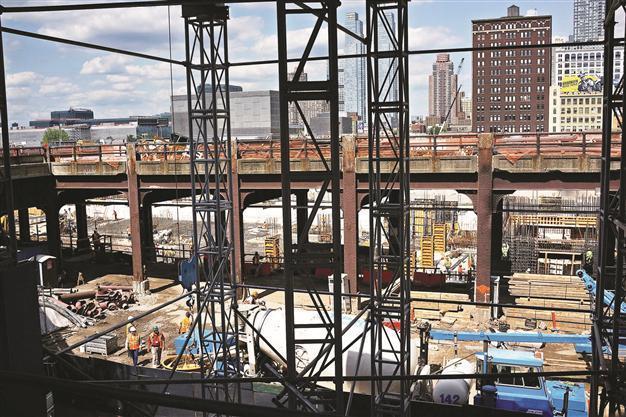High prices sap foreign interest in US real estate
NEW YORK - Reuters

This file photo shows the Hudson Yards Redevelopment Project that is developing Manhattan’s far West Side along the Hudson River in New York City. AFP photo
Foreign investors, who rapaciously scooped up U.S. real estate during the 2007-2009 recession, are backing away from the same markets they so eagerly jumped into a few years ago.
Real estate brokers say demand from international investors has flagged in locations that have been most attractive to overseas buyers - markets such as San Francisco, Phoenix, Las Vegas and Miami.
Many of those markets are back on solid footing after stumbling during the housing crisis. Property prices have risen, while the dollar - against the Indian rupee in particular, and to a lesser extent the Canadian dollar - has appreciated over the past year, despite hitting a speed bump in recent weeks.
As a result, real estate is no longer the bargain it once was for foreigners. That is discouraging new sales, while many foreigners who already own property - especially those who bought strictly as investment - are turning into sellers.
30 percent drop in San FranciscoKevin Kieffer, a broker who sells property in San Francisco for Keller Williams Realty, said in that area buying from foreigners has dropped by at least 30 percent in the last few months.
“That is partly due to the fact that prices escalated so quickly in the San Francisco area,” he said. “But some of my foreign clients have also mentioned the value of the dollar as another reason they decided not to buy.” At the same time, domestic demand for real estate held steady, he said.
Calamitous declines in many of the nation’s housing markets during the economic crisis had attracted droves of international investors seeking to cash in on a weak U.S. dollar and rock-bottom property prices. Many were attracted to Sun Belt markets that had been battered by the crisis.
